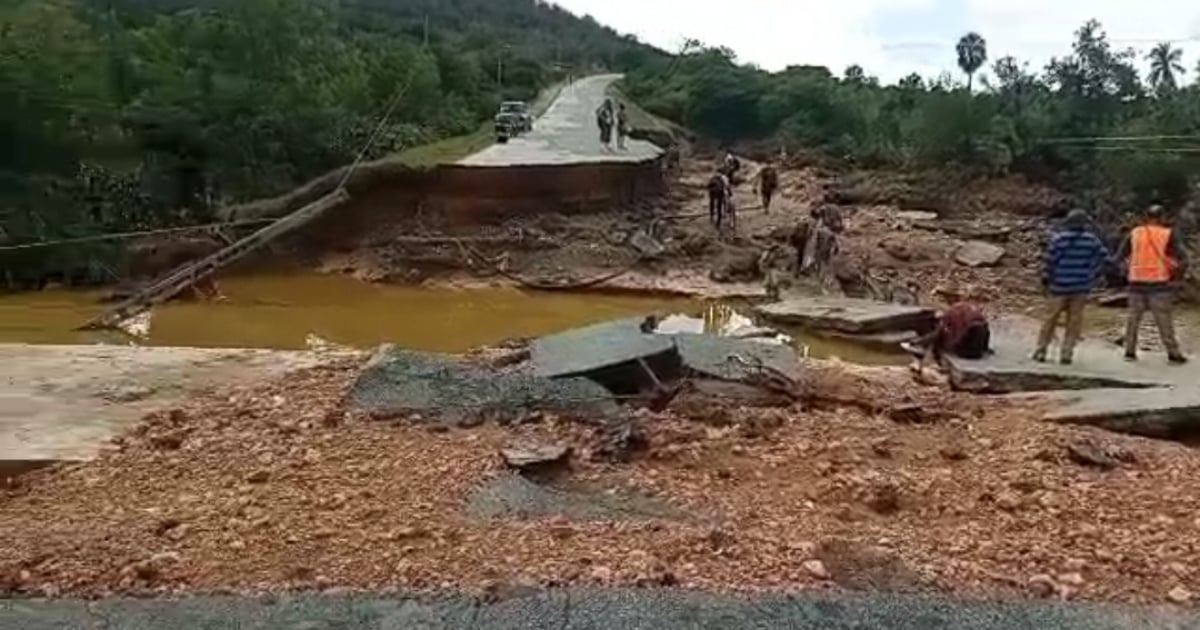In the wake of Hurricane Oscar's catastrophic impact on Guantánamo province, firsthand accounts from those affected cast doubt on the official statistics released by the Cuban authorities, which reported an official death toll of seven. A resident from San Antonio del Sur, a heavily afflicted municipality, insists that the situation is far more dire, with fatalities and disappearances exceeding the reported figures. "For instance, there's a couple, parents of a seven-year-old boy. The parents died, but it wasn't publicized. The boy was swept away by the river but managed to cling to a coconut tree. Thank God he's alive! But his parents weren't listed among the deceased," the woman recounted, highlighting the stark contrast between the community's reality and the official narrative.
She further mentioned that, according to her aunt, the local residents of San Antonio del Sur and neighboring areas estimate between 17 and 20 deaths, "because in these municipalities, everyone knows each other, and there are indeed many more fatalities."
Destruction in San Ignacio and Beyond
The village of San Ignacio, one of the hardest-hit areas, was completely submerged. The affected resident described how, in her family's neighborhood, the water even covered the rooftops of houses. In municipalities like Imías, although water levels have started to recede, certain areas remain inaccessible.
Another testimonial indicates that unofficially, there are reports of over 76 missing persons in the most severely affected locales. In coastal regions like San Antonio and Imías, with dense populations, many individuals are still stranded on their rooftops, awaiting the water to subside for rescue operations. The total rainfall accumulation in the region is estimated to have exceeded three meters.
Infrastructure Challenges and Community Response
"There are issues with the bridge's structure, limiting access, and the road is impassable. Reaching the main town is possible, but accessing other communities takes significantly more time," a resident noted. "Many had to flee their towns and seek shelter in the mountains, hoping to find refuge in other communities." A young local pointed out that residents were left in the dark for three days, assuming it was just heavy rainfall until the Pozo Azul dam failed. People went to bed, only to be startled by water rushing into their homes. Those in two-story houses took refuge on their roofs, but the water rose high enough to reach some families anyway."
The same volunteer involved in distributing food and essentials to the disaster-stricken shared insights into how survivors are being documented in still-inaccessible areas. He explained that those who manage to reach affected communities jot down the names of survivors, posting them on the public notice board for all to see. "This is how people in the area are being accounted for," he concluded.
These accounts underscore the disaster's magnitude, the government's mismanagement at the local level, and the Cuban state's overall indifference, leaving thousands of families in Guantánamo in a precarious state as they await aid and the receding of floodwaters to return home and rebuild their lives.
